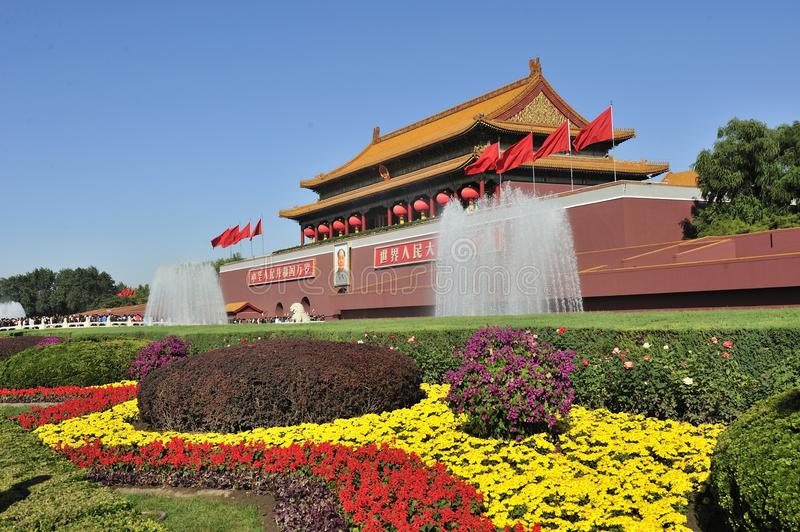China’s negotiations to join the WTO Government Procurement Agreement (GPA) have entered their 14th year, with little indication they will conclude anytime soon. While China has made significant progress in its GPA negotiations, the United States and others have indicated that more will be required to reach an acceptable accession package. This post stresses the importance of not letting China's accession continue to languish and considers the strong efforts that will be needed by both GPA parties and China to reach mutually acceptable terms for its accession.
China began its GPA accession when it applied for membership in the Agreement and tabled a very modest initial market access offer at the end of 2007, to fulfill a commitment it made when it joined the WTO. Over the ensuing years, it submitted six revised offers, gradually expanding the procurement that it will open under the GPA and bringing it closer to coverage commensurate with GPA parties. Its latest offer (October 2019) included all provinces and province-level municipalities, permanent thresholds that correspond to those used by most parties, opening the door to coverage of defense/military procurement (after long contending such coverage was not possible) and the addition of several more state-owned enterprises (SOEs) and services.
In a 2020 report on China’s compliance with its WTO commitments, the U.S. Trade Representative (USTR) recognized that China’s 2019 “offer showed progress,” but emphasized that it “remains far from acceptable,” citing significant deficiencies, including thresholds, entity and services coverage and exclusions. The Biden administration’s 2021 Foreign Trade Barriers report reiterated that assessment.
The GPA committee, in its report for 2020, emphasized the significance of China’s accession to the GPA, the WTO and the world economy, and as a signal for emerging economies. However, it also noted that parties “need more time” to review and submit questions and comments on China’s latest offer (and its updated replies to the Checklist of Issues) and urged the parties to do so “at their earliest convenience.” This apparent lack of concrete engagement with China on improvements needed in its offer may, in part, be the result of the Trump administration's lack of interest in procurement negotiations and its slight regard for the GPA. It behooves the parties to provide China, in a timely manner, with specifics on the improvements and other modifications in its offer that will be needed to complete its accession.
President Biden's trade team, as part of its constructive reengagement in the WTO, should work with the European Union and other key GPA parties to identify the shortfalls and other outstanding issues in China's offer and the scope of an accession package, and then engage in frank and constructive negotiations with China to reach mutually acceptable terms.
Negotiations on the scope of coverage of China's SOEs will be particularly important given their large role in the Chinese economy. While it long resisted coverage of SOEs, China has now offered to open the procurement of about 20 SOEs, most at the provincial level. A broader issue arises from the growing concern in the U.S. and other WTO members that the current WTO rules are not sufficient to address all the challenges raised by China’s economic system. Particularly challenging for the GPA parties in setting the terms for China's accession will be to ensure that they anticipate and include the necessary safeguards and constraints.
For its part, China should demonstrate its commitment to the global trading system by fulfilling its 20-year-old commitment to join the GPA by taking the final, albeit difficult, steps to meet the parties' requirements. A starting point would be to withdraw all claims to special and differential treatment, including higher transitional thresholds, domestic content, offsets and transfers of technology, as well as its proposal to delay its implementation of the GPA for two years after accession, which is clearly a non-starter.
While some transitional measures might have been appropriate had China’s accession been completed years ago, they can no longer be justified. In the past decade, of the four developing countries that joined the GPA, only Moldova applied a transitional measure - higher thresholds for two years. Armenia, Montenegro and Ukraine joined without any special measures.
Letting China’s GPA accession continue to languish is not in the interest of the GPA or the WTO. Moreover, it sets an unfortunate precedent for other accessions in the pipeline, including Russia's. Commitments to keeping the WTO relevant should include strong efforts by both the GPA parties and China to reach a mutually acceptable accession package.
China's accession should not be approved at any price. BUSINESSEUROPE, a major EU business organization, in a 2020 report articulated a guide for the negotiations with China: more important than China’s timely accession to the GPA is the need to ensure “a maximum level of ambition” and strong enforcement provisions “should China’s accession not deliver in practice.”
Jean Heilman Grier
April 27, 2021
Related Posts
China's New GPA Offer: Enhances Accession Prospects
China: Revising Government Procurement Law
China: Revising Tendering and Bidding Law
Post Permalink: https://trade.djaghe.com/14th-year-whither-chinas-gpa-accession/


